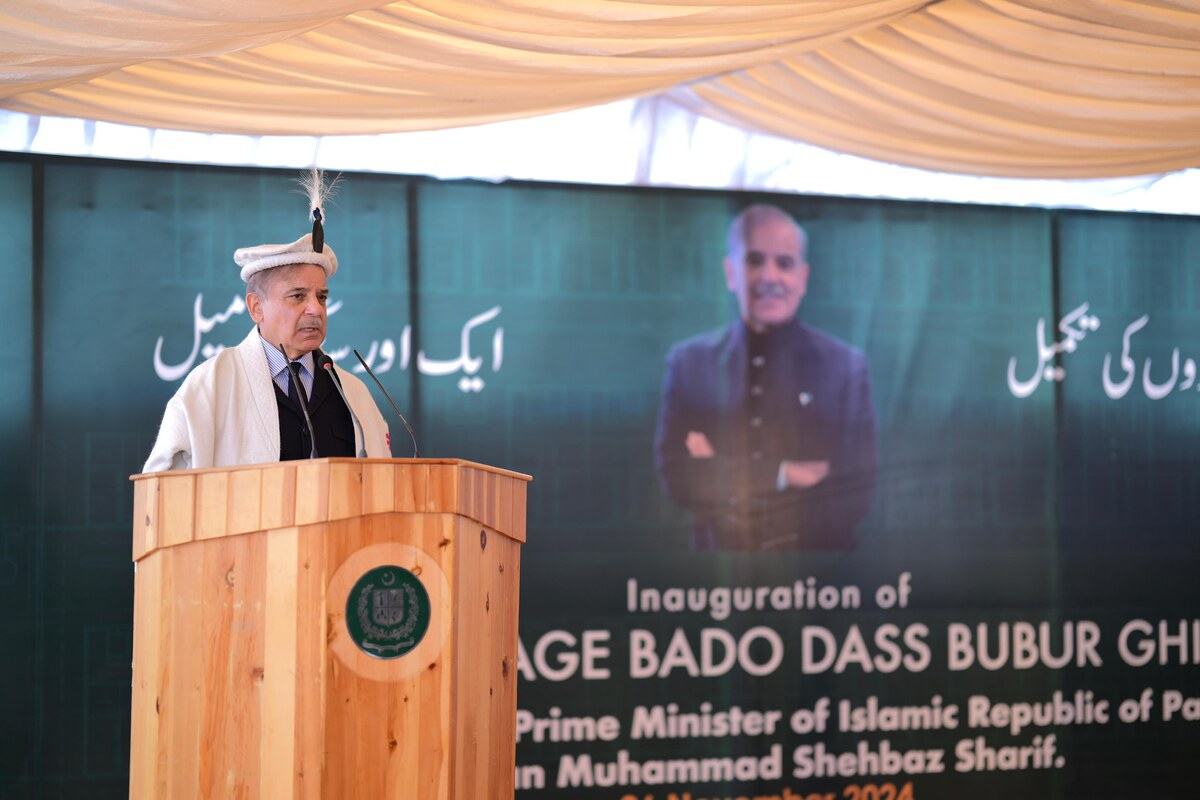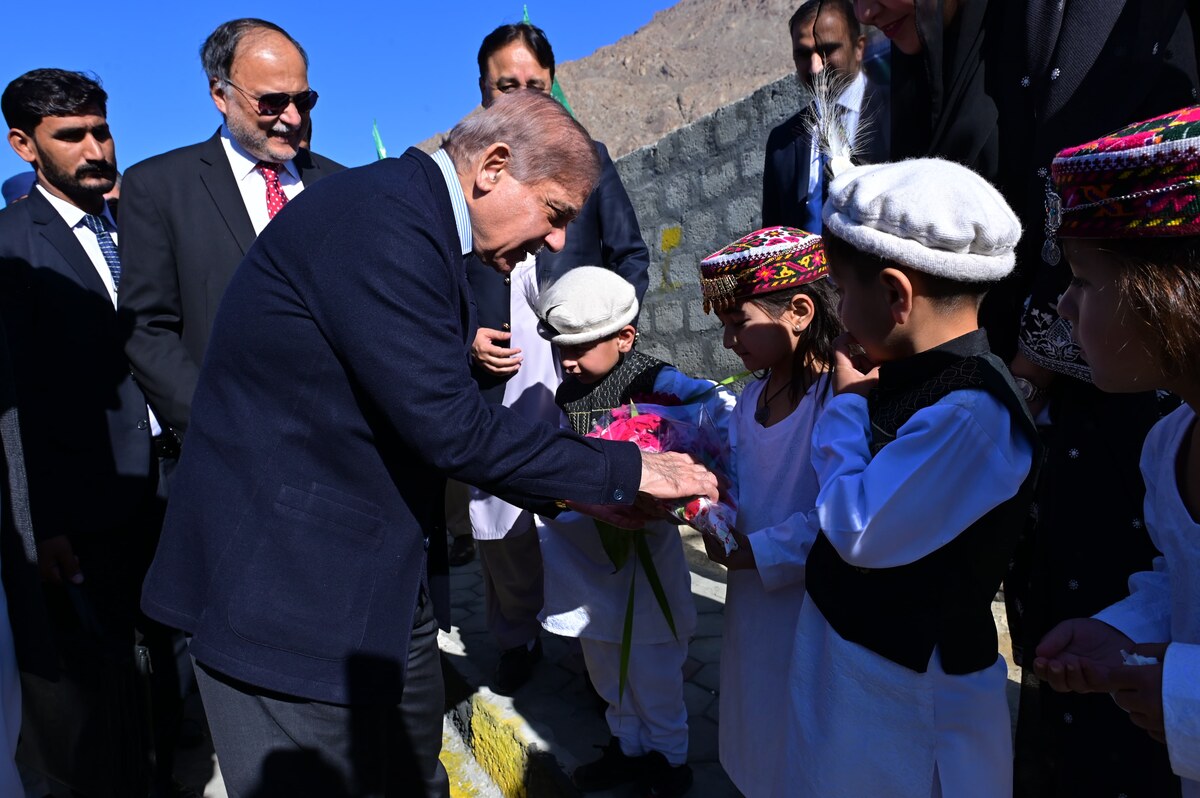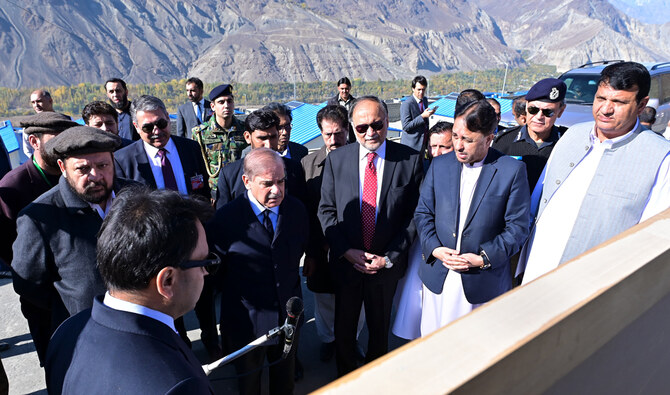ISLAMABAD: Prime Minister Shehbaz Sharif inaugurated a model village for flood-affected families in Pakistan’s northern Gilgit-Baltistan (GB) region during a day-long visit to Ghizer on Wednesday, pledging to provide residents with ownership documents to help them acquire new houses.
Pakistan is among the world’s most vulnerable countries to the effects of climate change. It faced devastating floods triggered by unprecedented monsoon rains in 2022, which killed over 1,700 people, destroyed farms, homes and public infrastructure, and resulted in financial losses exceeding $35 billion.
Many residents in GB also lost their homes, primarily due to glacial lake outburst floods, which also swept away some key river bridges in the region.
“Today, I have come here after two years,” the prime minister told the inauguration gathering in a speech that was televised. “When I came here in August 2022, it was terrible and almost all the homes were destroyed by rains and floods. Many people’s houses had been razed to the ground.”

Prime Minister Shehbaz Sharif addresses the inauguration ceremony of Bubar Village Flood Rehab Project in Ghizer, in Pakistan’s northern region of Gilgit Baltistan on November 6, 2024. (Photo courtesy: PMO)
“That was an unfortunate day in history,” he added. “A new society has been established today for the flood affected people. They will be given their ownership documents. I have already given these documents to five or six families.”
Scientists blame Pakistan’s erratic weather patterns on climate change.

Prime Minister Shehbaz Sharif interacts with the locals in Bubar Village, in Pakistan’s northern region of Gilgit Baltistan on November 6, 2024. (Photo courtesy: PMO)
This year, the South Asian country recorded its “wettest April since 1961,” with 59.3 millimeters of rainfall, while some areas of the country faced deadly heatwaves in May and June.
Sharif is also scheduled to inaugurate several development projects, including Naltar Expressway, Greater Water Supply in Hunza and the 54MW Hydropower plant in Attabad, according to a statement released by his office.












